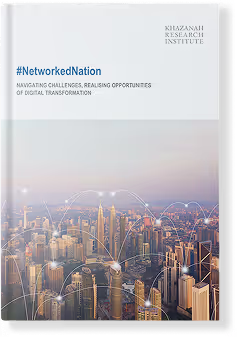
This book is a compilation of KRI's revised published papers on digital policies issues from September 2020 to April 2021. Its eight chapters delve into pressing issues surrounding digital transformation, including digital inclusion, mobile broadband quality, platform workers, digitalisation among firms, data access and privacy, misinformation and artificial intelligence.
The book makes it clear that digital transformation is an all-of-society process that needs to include social well-being and human rights as well as economic development and growth. Having a digital society mindset involves thinking about development and design not just for efficiency but also for inclusivity. This society-first policy framework recognises that the challenges facing a digital society are not to be solved with just technical solutions but also with social solutions. Thus, inclusive and future-proof public policies are key to Malaysia’s digital transformation.
The book makes it clear that digital transformation is an all-of-society process that needs to include social well-being and human rights as well as economic development and growth. Having a digital society mindset involves thinking about development and design not just for efficiency but also for inclusivity. This society-first policy framework recognises that the challenges facing a digital society are not to be solved with just technical solutions but also with social solutions. Thus, inclusive and future-proof public policies are key to Malaysia’s digital transformation.






_2.avif)







